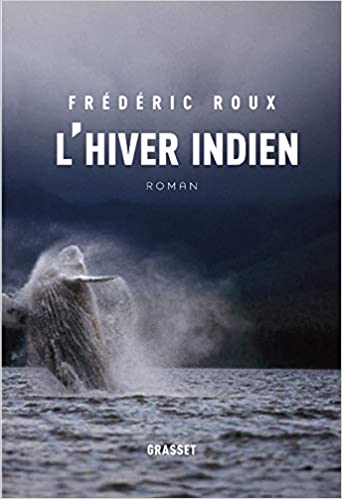
The alternation of seasons seems hidden from the screens and theories about climate change. Mostly, however, it hides behind the beasts, made of steel and cement. Everything does not seem to change. Like a heavy dusty curtain, modern technological civilization covers birth and decay, death and rebirth. The death of nature is as necessary as the culmination of the sun and life. The biorhythms and habits of a machine completely knocked the senses to sleep.
This is why the Makah are immersed in an endless Indian winter – the mechanical operation of a habit. The Makah tribe is a native of the Pacific Northwest that lives in present-day Washington. Their existence is defined from the pre- and post-conquest era, when they were transformed from hunters of forest and sea prey, into hunters of alcohol and oblivion. The narrator of the novel finds them immersed in nowhere.
One narrator has just been released from prison for beating someone in a quarrel in a bar. His brother, the shadow of the first, commits petty thefts and drinks constantly, living in an impoverished and dirty hut, like all Makah. The third, a former Vietnam veteran, who secretly loves poetry and literature. The fourth, the veteran’s son, also a veteran of the Iraq war, is trying to find himself in the anonymity of the big city. The other two, special cases in every way: one sex-obsessed, exploits sexually and financially rich middle-aged women, promising peace and tranquility, while the other, a mysterious giant who uses his electric saw to carve portraits of Elvis on trees.
The common denominator is that they want to make the leap from the depths of the never-ending Indian winter, trying to escape the stereotype of the declining alcoholic Native American who has accomplished nothing in his life. But they do not want to do it on white terms. They do not want a tidy life, as the white “protocol” states. They seek a true leap in freedom.
The solution is given by Stand, the recently released prisoner, who had time to think in prison, abstaining from alcohol. He comes out transformed, after he has spent his initiation in his cell, full of tattoos. Ironically, the once voluntary isolation in a hut and the tattoo that would define the passport ceremony into a new state of maturity, turn in this case into an involuntary initiation, into a non-place, the prison space. Isolated from the past and the future, doomed to the present in his cell, Stan finds a way to make the leap. In this he will take with him the whole “wild bunch”.
The jump starts all the action. They want to escape the mud thrown by the whites, turning their paradise into a tourist attraction and a place of whaling (until they run out of natural resources), but they do not want to become helpless vassals of their pursuers. They decide to take the opposite path and look for their roots, long lost and forgotten.
In an extremely apt and funny way, the author (Frédéric Roux) manages to give the essence of the problem. The natives have long since been cut off from their place, there is no way to live like their ancestors, because knowledge has been lost and today’s older people are caricatures of the wise of the tribe. Stand, then, has the idea of becoming whale hunters again, like their ancient ancestors. No one knows how, but everyone is slowly succumbing to the plan and doing everything to make it happen.
Their obstacles, however, are not limited to ignorance. Opposite them they will find fanatical ecologists, who under the pretext of environmental protection, make a career, conservative whites, who risk losing their moral advantage, journalists whose survival depends on the construction of bad, and ultimately the law and the police.
Through all these clusters they may not come out whole, but they manage to make the jump at the right time. To find this intermediate state between sleep and wakefulness, at the dawn of human existence, to escape from the fate reserved for them by friends and enemies. In a way they find this unique eternal moment of freedom, which is not shaped, but remains fluid. Somewhere there ends for them the Indian Winter.
Anastasia Karavasileiou


